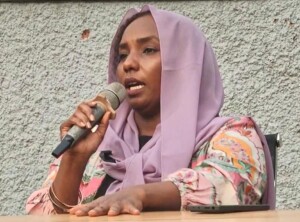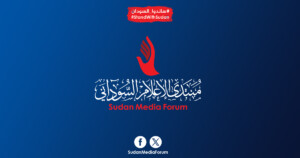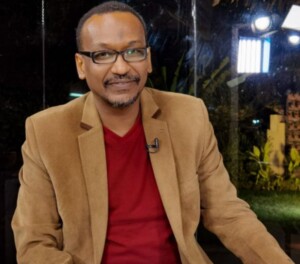UNITAMS head to UNSC: ‘Step-up assistance to Sudan’
The head of the new UN Integrated Transition Assistance Mission in Sudan (UNITAMS), UN Special Representative of the Secretary-General for Sudan, Volker Perthes, told the UN Security Council (UNSC) in a virtual briefing yesterday that that while Sudan is making significant advances in its transition “the remaining challenges are staggering”. He urges the international community to step up their assistance to Sudan: “it is urgent to respond to the needs of communities across the country”.
 UN Special Representative Volker Perthes (Picture: UN)
UN Special Representative Volker Perthes (Picture: UN)
The head of the new UN Integrated Transition Assistance Mission in Sudan (UNITAMS), UN Special Representative of the Secretary-General for Sudan, Volker Perthes, told the UN Security Council (UNSC) in a virtual briefing yesterday that that while Sudan is making significant advances in its transition “the remaining challenges are staggering”. He urges the international community to step up their assistance to Sudan: “it is urgent to respond to the needs of communities across the country”.
In his first briefing since his arrival in Sudan on February 3, Perthes cautioned the UNSC: “Progress on the political transition or peacebuilding will not happen without economic resources, and vice versa.” He also pointed out that the protection of civilians [during and following the final drawdown of UNAMID ed] is one of his mission’s main priorities
Perthes outlined that in the five weeks since he arrived in Sudan, he has met with the transitional government, the Sovereignty Council, and listened to a wide range of stakeholders in Sudan. He says he has listened to their aspirations and the challenges that Sudan is facing. “I am also constantly trying to explain what our mandate is, what the nature of our mission is.”
‘Progress on the political transition or peacebuilding will not happen without economic resources, and vice versa’
He reiterated the four strategic objectives of the UNITAMS mandate: support for the political transition, peace processes and the implementation of peace agreements, peacebuilding, and of course the mobilisation of external resources.
“These are interdependent objectives. Progress on the political transition or peacebuilding will not happen without economic resources, and vice versa,” he said.
The Special Representative explained: “The political transition in Sudan is moving forward. Sudan’s Sovereignty Council was expanded to include three signatories to the Juba Peace Agreement and a new a cabinet has been formed under the leadership of Prime Minister Abdalla Hamdok.”
Video: UN Web TV
‘The new cabinet has a distinctively political – as opposed to technocratic – character’
“The new cabinet has a distinctively political – as opposed to technocratic – character. It is a broad coalition built on power-sharing between civilians, the military, and armed movements. There are diverging views as to the capability of this government, and definitely the government does not include all political forces. However, the representation of different political currents and movements, with their respective constituencies, has already made it possible for this government to take and to implement even difficult decisions.”
Perthes cautioned that “important milestones foreseen in the Constitutional Document and the Juba Peace Agreement have yet to be reached, notably the formation of a Transitional Legislative Council with at least 40 per cent representation of women. The swift formation of an inclusive and representative Legislative Council is indeed critical to broaden the support for the political transition.
‘There are fears that the gains achieved for women’s rights in the Constitutional Document… might not be realised’
“There are fears that the gains achieved for women’s rights in the Constitutional Document, such as the Gender Commission to be established, and the 40 per cent representation of women, might not be realised.
“Sudanese youth have also expressed frustration over their lack of representation. I can only underscore that an inclusive political process, including all segments of Sudan’s diverse society throughout the political transition, is essential for the success of this transition.”
In his briefing, Perthes told the UNSC that there has been progress on economic reform and Prime Minister Hamdok’s messages that Sudan is now becoming a country open for investment. “The government’s decision to float the exchange rate of the Sudanese currency was a courageous step that will unlock financial assistance, pave the way for debt relief and fostering private sector engagement. The Investors’ conference coming up in Paris in May can help mobilise private foreign investment, driving job creation and development.”
‘Economic hardships are posing real risk to Sudan’s stability… I therefore urge the international community to step up their assistance to Sudan’
He underlined that “economic hardships are posing real risk to Sudan’s stability. Inflation stands at about 300 per cent in January. Sudan also suffers from large trade and financial fiscal deficits, high unemployment, and poverty. 13.4 million people – that is a quarter of the country’s population – are in need of humanitarian assistance, including 2.5 million internally displaced. Sudan generously hosts 1 million refugees, including 70,000 recent arrivals from Ethiopia.”
While the Government has launched the Family Support Programme to ease the strain on large segments of the Sudanese population, the need for sustained financial and economic support to Sudan cannot be overstated and “I therefore urge the international community to step up their assistance to Sudan”.
The protection of civilians is one of our main priorities. In January, and the Council had a session about that, intercommunal clashes in El Geneina, in West Darfur, left 165 people dead and 100,000 displaced. Subsequent clashes in West Darfur and South Darfur underscore the risks of more intercommunal violence. “The United Nations is working to support the Sudanese government to strengthen the protection of civilians’” he assured. “The Minister of Interior and Head of the National Committee for the Protection of Civilians have requested the UN’s assistance to strengthen policing capacity and early warning and we are responding with technical advice and with capacity building.”
Progress in the protection of civilians also requires strengthened legal frameworks for human rights and for the rule of law, Perthes suggests, welcoming Sudan’s recent decision to ratify the Convention against Torture and Other Cruel, Inhuman or Degrading Treatment or Punishment, as well as the International Convention for the Protection of All Persons from Enforced Disappearance.
“The Order from Sudan’s Attorney General prohibiting the arrest and detention by non-police forces is also a step in the right direction. Protecting the space for peaceful protests and for civic activity will remain critical.”
‘Peace will only be sustainable if the root causes of the conflicts are addressed’
The special representative further cautions the “peace will only be sustainable if the root causes of the conflicts are addressed. The UN and its partners are implementing prevention and peacebuilding projects not only in Darfur but in Darfur and elsewhere, including projects started by UNAMID. UNMAS for example is now conducting demining in Darfur and the Blue Nile State in the aftermath of Juba Agreement.=
“UNITAMS is a small mission but a small mission with a broad mandate. Together with the UN country team, we are adopting an integrated approach to maximise our efforts and our resources.”
“Sudan is making significant advances in its transition. However, the remaining challenges are staggering. It is urgent to respond to the needs of communities across the country. UNITAMS, with an integrated country team, is committed to working closely with all components of the transitional authorities and other stakeholders in the country to address these challenges and help realise the aspirations of the Sudanese people. We are here for all of Sudan and I am confident that, with the unified support of this Council, we will be able to make a difference, he concludes.











 and then
and then